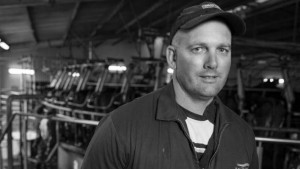RoVE expectations
RoVE expectations
Chris Lewis, Federated Farmers’ national dairy chair, talks about what the Reform of Vocational Education means for him, his farm and the wider dairy industry.
Chris Lewis, Federated Farmers’ national dairy chair, talks about what the Reform of Vocational Education means for him, his farm and the wider dairy industry.

“I’ve always had a passion for training and education,” Chris said. “I’ve previously called for change in the education sector, particularly around underfunding, so these reforms need to solve that issue to be successful.”
The present funding system has created problems for learners and employers by incentivising Tertiary Education Organisations (TEOs) to keep people in the classroom (and off the job) for longer than necessary. In future, the new RoVE funding system will support more on-the-job training.
Unifying the funding system is one of RoVE’s seven main changes to vocational education, and one of the most important.
“I personally believe this is critical. Vocational education has to be better funded, and industry and government need to work together to get more people prepared for work in today’s changing environment.”
The reforms will put industry in charge of what providers teach. Industry-governed workforce development councils set up from 2020 onwards will directly advise government on whether programmes are fit for purpose, and whether they are taught on-the-job, on-campus or online, or a combination of these. These councils will help determine if certain programmes will be funded or not.
Chris agrees with this change, as it is about preparing learners for the future of work and he needs his new staff to be work-ready.
Chris employs eight farmhands, including two women and a mix of New Zealanders and recent migrants. His full-time staff are all enrolled in industry training.
"What we were taught 20 years ago may still be relevant but we need to keep upskilling, and this includes employers.” He walks the talk by doing training courses regularly himself. He believes this keeps his business competitive and attracts skilled talent.
Chris is keenly aware of young New Zealanders’ own desires to upskill, learn more and embark on a meaningful career. He recently carried out a recruiting experiment.
The first job advertised was titled ‘farm assistant’ for an entry-level applicant. The second, ‘farm apprenticeship’ made it clear they were looking to train someone. The results were telling. The first advert received 10 applications, including nine migrants applying from overseas and one local Kiwi. The second advert generated a whopping 50 applications from 30 New Zealanders and 20 migrants.
“I had a lightbulb moment. Kiwis do want to work on our farms but our locals are looking for apprenticeships and careers."
RoVE is changing the vocational education system to provide learners with better futures and more meaningful work options.
The dairy industry is one of many that will benefit from new, more work-ready vocational learners but as Chris says, “It is heavily reliant on well-trained staff to run farms. We need a well-educated work force to remain successful. Education is vital to the viability of the economy and the communities of New Zealand.”